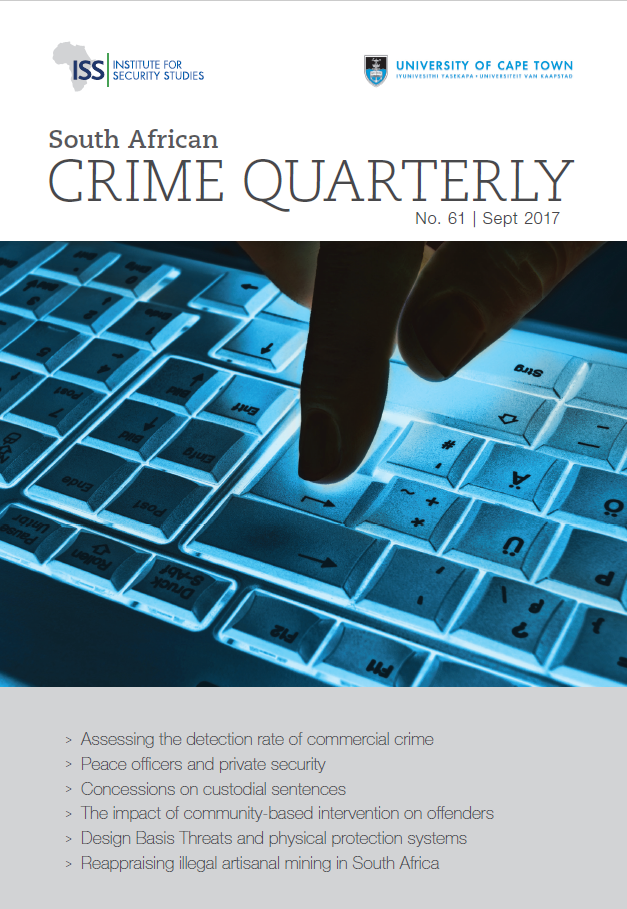Concessions on custodial sentences: Learning from the New Zealand approach to restorative justice
DOI:
https://doi.org/10.17159/2413-3108/2017/i61a2814Keywords:
restorative justice, South Africa, New ZealandAbstract
South African courts, in at least two reported cases, have dealt with restorative justice (RJ) in sentencing offenders (i.e. State v. Thabethe (Thabethe case); State v. Seedat (Seedat case)). In both of these cases, the Supreme Court of Appeal rejected the notion of RJ in its entirety, with the presiding judges ‘[cautioning] seriously against the use of restorative justice as a sentence for serious offences.’ However, in countries such as New Zealand, courts have handed down custodial sentences in cases of serious offences while giving due regard to RJ at the same time. The purpose of this article is to highlight some of the strategies that New Zealand courts have invoked to ensure that a balance is struck between retributive justice and RJ. On the basis of this analysis, a conclusion is drawn that RJ can play a role in criminal matters by having it reflect through reduced sentences. With such a strategy, courts can strike a balance between the clear and powerful need for a denunciating sentence on the one hand and RJ on the other.
Downloads
References
H Zehr, Changing lenses-A new focus for crime and justice, Scottsdale: Herald Press, 2005.
H Zehr, The little book of restorative justice, Intercourse: Good Books, 2002.
T Marshall, The evolution of restorative justice in Britain, European Journal of Criminal Policy & Research, 4, 1996.
M Batley, ‘Ngwana phosa dira ga a bolawe’: The value of restorative justice to the reintegration of offenders, SA Crime Quarterly 26, 2008.
A Skelton and M Batley, Restorative justice: A contemporary South Africa, Acta Criminologica 21, 2008.
United Nations Economic and Social Council United Nations Economic and Social Council Resolution 2002/12: Basic Principles on the Use of Restorative Justice Programmes in Criminal Matters, 24 July 2002, E/RES/2002/12. Available at: http://www.refworld.org/docid/46c455820.html (accessed 1 April 2017).
S v Maluleke 2008 1 SACR 49 (T).
New Zealand Sentencing Act 2002.
South Africa’s Child Justice Act 75 of 2008.
S v Thabethe 2009 (2) SACR 62 (T) (Thabethe case).
Seedat v S (731/2015) [2016] ZASCA 153 (03 October 2016) (Seedat case).
Director of Public Prosecution, North Gauteng v Thabethe 2011(2) SACR 567 (SCA) (Thabethe Appeal).
R v Clotworthy (1998) 15 CRNZ 651 (C.A).
H Bowen and T Thompson, Restorative justice and the New Zealand Court of Appeal’s decision in the Clotworthy case, Journal of South Pacific Law, 3, 1999, available at http://www.vanuatu.usp.ac.fj/journal_splaw/articles/Bowen1.htm (accessed 24 June 2017).
K Basire, Taking restorative justice seriously, Canterbury Law Review, 13, 2007.
Police v Stretch, Unreported Nelson High Court AP 9/01 9:10:01.
R v Cassidy, unreported, High Court, New Plymouth, T 2/03, 10 July 2003.
R v Folaumoeloa, unreported, Auckland District Court, CR 2004-004-003788, 16.9.04.
Downloads
Published
Issue
Section
License
Copyright (c) 2017 Author and Institute for Security Studies

This work is licensed under a Creative Commons Attribution 4.0 International License.
SACQ is licenced under a creative commons licence (CC BY) that allows others to distribute, remix, tweak, and build upon your work, even commercially, as long a they give appropriate credit, provide a link to the license, and indicate if changes were made. They may do so in any reasonable manner, but not in any way that suggests the licensor endorses you or your use.
Copyright for articles published is vested equally between the author/s, the Institute for Security Studies and the Centre of Criminology (UCT).




.png)